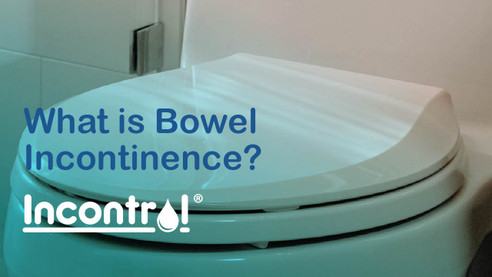2021 Mar 17th
What is Bowel incontinence?
Bowel incontinence or fecal incontinence is the inability to control bowel movements, causing stool (feces) to leak unexpectedly from the rectum. Fecal incontinence ranges from an occasional leakage of stool while passing gas to a complete loss of bowel control.
Symptoms:
Fecal incontinence may occur temporarily during an occasional bout of diarrhea, but for some people, fecal incontinence is chronic or recurring. People with this condition may be unable to stop the urge to defecate, which comes on so suddenly that they don't make it to the toilet in time. This is called urge incontinence.
Another type of fecal incontinence occurs in people who are not aware of the need to pass stool. This is called passive incontinence.
Fecal incontinence may be accompanied by other bowel problems, such as:
- Diarrhea
- Constipation
- Gas and bloating
When to see a doctor
See your doctor if you or your child develops fecal incontinence, especially if it's frequent or severe, or if it causes emotional distress. Often, people are reluctant to tell their doctors about fecal incontinence. But treatments are available, and the sooner you're evaluated, the sooner you may find some relief from your symptoms.
Causes of bowel incontinence
- Muscle damage - Injury to the rings of muscle at the end of the rectum (anal sphincter) may make it difficult to hold stool back properly. This kind of damage can occur during childbirth, especially if you have an episiotomy or forceps are used during delivery.
- Nerve damage - Injury to the nerves that sense stool in the rectum or those that control the anal sphincter can lead to fecal incontinence. The nerve damage can be caused by childbirth, constant straining during bowel movements, spinal cord injury or stroke. Some diseases, such as diabetes and multiple sclerosis, also can affect these nerves and cause damage that leads to fecal incontinence.
- Constipation - Chronic constipation may cause a dry, hard mass of stool (impacted stool) to form in the rectum and become too large to pass. The muscles of the rectum and intestines stretch and eventually weaken, allowing watery stool from farther up the digestive tract to move around the impacted stool and leak out. Chronic constipation may also cause nerve damage that leads to fecal incontinence.
- Diarrhea - Solid stool is easier to retain in the rectum than is loose stool, so the loose stools of diarrhea can cause or worsen fecal incontinence.
- Hemorrhoids - When the veins in your rectum swell, causing hemorrhoids, this keeps your anus from closing completely, which can allow stool to leak out.
- Loss of storage capacity in the rectum - Normally, the rectum stretches to accommodate stool. If your rectum is scarred or your rectal walls have stiffened from surgery, radiation treatment or inflammatory bowel disease, the rectum can't stretch as much as it needs to, and excess stool can leak out.
- Surgery - Surgery to treat enlarged veins in the rectum or anus (hemorrhoids), as well as more-complex operations involving the rectum and anus, can cause muscle and nerve damage that leads to fecal incontinence.
- Rectal prolapse - Fecal incontinence can be a result of this condition, in which the rectum drops down into the anus.
- Rectocele - In women, fecal incontinence can occur if the rectum protrudes through the vagina.
Solutions for bowel incontinence:
Depending on the cause, it may be possible to prevent fecal incontinence. These actions may help:
Reduce constipation - Increase your exercise, eat more high-fiber foods and drink plenty of fluids.
Control diarrhea - Treating or eliminating the cause of the diarrhea, such as an intestinal infection, may help you avoid fecal incontinence.
Avoid straining - Straining during bowel movements can eventually weaken anal sphincter muscles or damage nerves, possibly leading to fecal incontinence.
Sources:
https://www.mayoclinic.org/diseases-conditions/fecal-incontinence/symptoms-causes/syc-20351397

